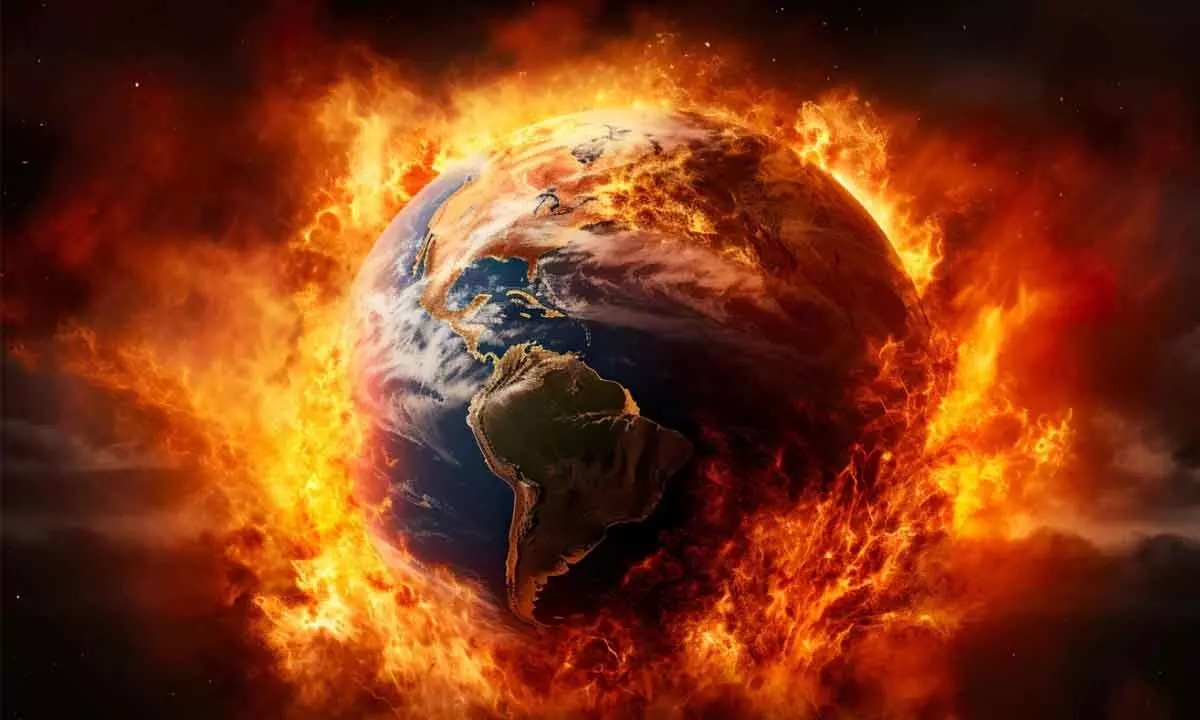Global warming rate reaches all-time high

The devastation wrought by wildfires, drought, flooding, and heatwaves the world saw in 2023 must not become the new normal. Rapidly reducing emissions of greenhouse gases towards net zero will limit the level of global warming we ultimately experience. At the same time, we need to build more resilient societies, lead author Piers Forster, a climate physicist at the University of Leeds in the U.K. and an IPCC author, said in a statement
Climate scientists have published a reportm showing that the rate of global warming reached an all-time high in the 10 years up to and including 2023 and that the record-breaking heat of last year was primarily due to that human-caused heating rather than other factors such as El Niño.
The scientists found that from 2014 to 2023, the Earth warmed 0.26°C—higher than any previous 10-year period. The report, published in Earth System Science Data, was completed by 57 scientists who used the methods of the United Nations Intergovernmental Panel on Climate Change (IPCC), which produces major reports only every five to 10 years, with the next one expected in 2027. The report authors sought to fill the gap and, at least in one case, to galvanize climate action.
“Rapidly reducing emissions of greenhouse gases towards net zero will limit the level of global warming we ultimately experience. At the same time, we need to build more resilient societies,” lead author Piers Forster, a climate physicist at the University of Leeds in the U.K. and an IPCC author, said in a statement. “The devastation wrought by wildfires, drought, flooding, and heatwaves the world saw in 2023 must not become the new normal.”
Over the course of 2023, temperatures were on average 1.43°C above preindustrial levels, Forster and co-authors found, with an estimated 1.31°C of that due to human-caused global warming, and the relatively small remainder due to variability from events such as El Niño and La Niña.
The report also shows that the Earth’s remaining “carbon budget”—how much can be emitted before reaching 1.5°C of warming, the Paris agreement target—is now roughly 200 gigatonnes, which will take only five years or so for the global population to use. This is down from the 500 gigatonnes that the IPCC estimated remained in the budget as of 2020.
Adam Vaughan, environment editor at The Times, a U.K. newspaper, drew attention to the short time period in which humanity has to act, writing on social media that the 1.5°C target could be “blown” if emissions didn’t go down. In a guest post in Carbon Brief, Forster and another co-author explained that their report was “nothing short of alarming, yet it does contain some encouraging news.”
“Greenhouse gas emissions have not yet risen beyond pre-pandemic levels and there is evidence that the rate of increase in CO2 emissions over the past decade has slowed compared to the 2000s,” they said. Forster, who also led the annual report in its first iteration last year, spoke to reporters in such a way as to avoid doomsday rhetoric.
“If you look at this world accelerating or going through a big tipping point, things aren’t doing that,” he told TheAssociated Press. “Things are increasing in temperature and getting worse in sort of exactly the way we predicted.”
However, the climate news remains dire: Researchers working with even more up-to-date data—through May—have found that the average temperature increase above preindustrial levels is now 1.6°C, and each of the last 12 months has been the hottest on record for that month. Those findings are from data released by the European Union’s Copernicus Climate Change Service and reported by The Washington Post.
https://www.commondreams.org/















